On 1 March, I posed the question, "What Makes A Hero?" in Fantasy fiction. Subsequently, I’ve examined the part played by the Call, Circumstance, Commitment, Courage, and meeting the Challenge.
Last month, I argued that the above qualities are essential to the making of a Fantasy hero, and embarked on looking at an array of secondary characteristics, starting with Charisma, in order to determine whether or not they’re also essential to heroism.
 |
| Chris Hemsworth as the Huntsman |
Chivalry and the Fantasy Hero
I could argue that chivalry is a uniquely Medieval concept, centered on heroes such as King Arthur and the Knights of the Round Table, Roland and Oliver, and Robin Hood.
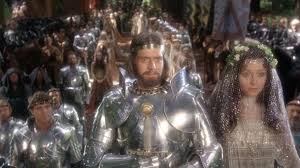 |
| King Arthur & the Round Table |
An important part of Achilles’ story arc is not only his fall from the chivalric ideal, but also his return to it: showing mercy to Priam, the grieving father, and returning the body of his son, Hector, for burial.
 |
| Achilles in "Troy" |
When it comes to contemporary Fantasy, there are some great chivalric heroes adorning the genre. It’s impossible to go past Aragorn and Faramir in The Lord of the Rings (book version, not films, for Faramir), while Reepicheep, the heroic mouse in CS Lewis’s Narnia, is chivalric to the tip of his whiskers.
 |
| Reepicheep |
Other such heroes include Paksenarrion in the Deed of Paksenarrion by Elizabeth Moon, Barbara Hambly’s Dragonsbane, John Aversane, Morgon of Hed (the Riddlemaster trilogy), and Aidris in Cherry Wilder’s A Princess of the Chameln
 |
 |
Yet there are just as many heroes, many of them equally significant in the genre, that are not chivalric at all. Elric of Melniboné (Michael Moorcock) is a classic example, and although Dakeyras, the Slayer, does follow a redemption arc in David Gemmell’s Waylander, he is never chivalric—although arguably, The Thirty are.
 |
NK Jemisin’s Yeine Darr (The Hundred Thousand Kingdoms) is a heroine of necessity, rather than idealism, and S.A. Chakraborty’s Nahri, in the Daevabad trilogy, is similarly circumstanced. Chivalry is also in short supply among Leigh Bardugo’s Crows (Six of Crows duo), although they do value loyalty to and comradeship among each other—so long as necessity and larger objectives permit.
 |
 |
| Chivalry, "First Knight" style |
In other words, however reluctantly, they all answer the Call to some degree or other, based on their Circumstances, and demonstrate Commitment and Courage in meeting the heroic Challenge.
I believe there is a third group, though, which I regard as chivalry-neutral. These protagonists are essentially good people and strive to act fairly and honorably, so they’re not anti-heroes, but they’re not paladins either. Ged, in Ursula Le Guin’s Earthsea trilogy, is a classic non-chivalric hero, and Samwise Gamgee is another. Amat Kyaan, in Daniel Abraham’s A Shadow In Summer, also fits the bill.
 |
| Samwise Gamgee |
© Helen Lowe
~*~
Previous Posts:
January: Looking Forward To An Heroic 2022
March: What Makes A Hero -- and The Call
April: What Makes A Hero #2: Circumstance
May: What Makes A Hero #3: Commitment
June: What Makes A Hero #4: Courage
July: What Makes A Hero #5: Challenge
August: What Makes A Hero #6: Charisma
~*~
About The Author:
Helen Lowe is an award-winning novelist, poet, and lover of story. With four books published to date, she is currently completing the final instalment in The Wall Of Night series.
Helen posts regularly on her “…on Anything, Really” blog, monthly on the Supernatural Underground, and tweets @helenl0we.


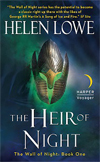
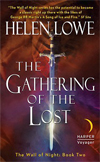
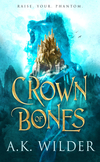
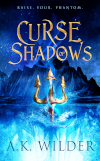
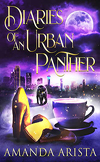
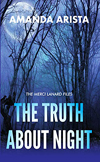

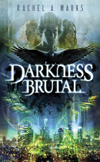
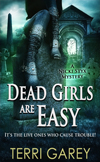
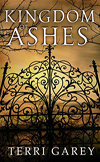
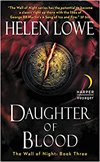
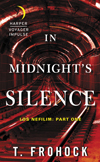
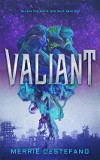
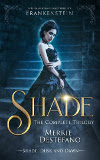

No comments:
Post a Comment